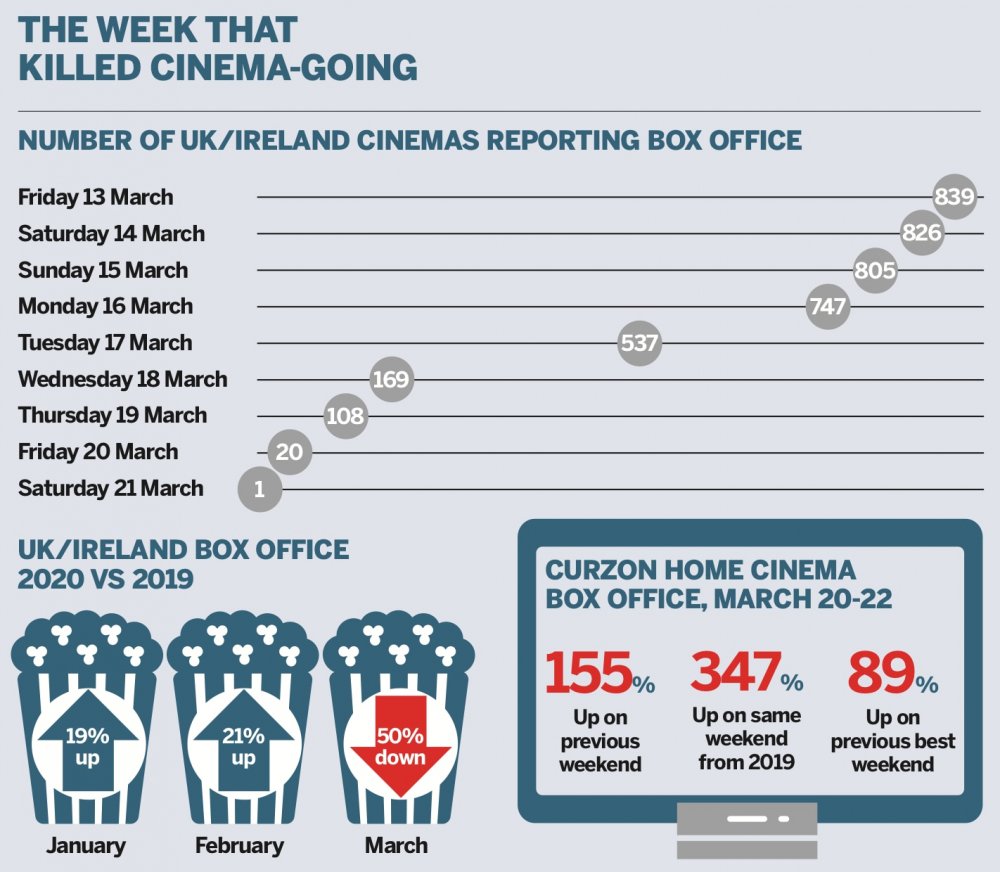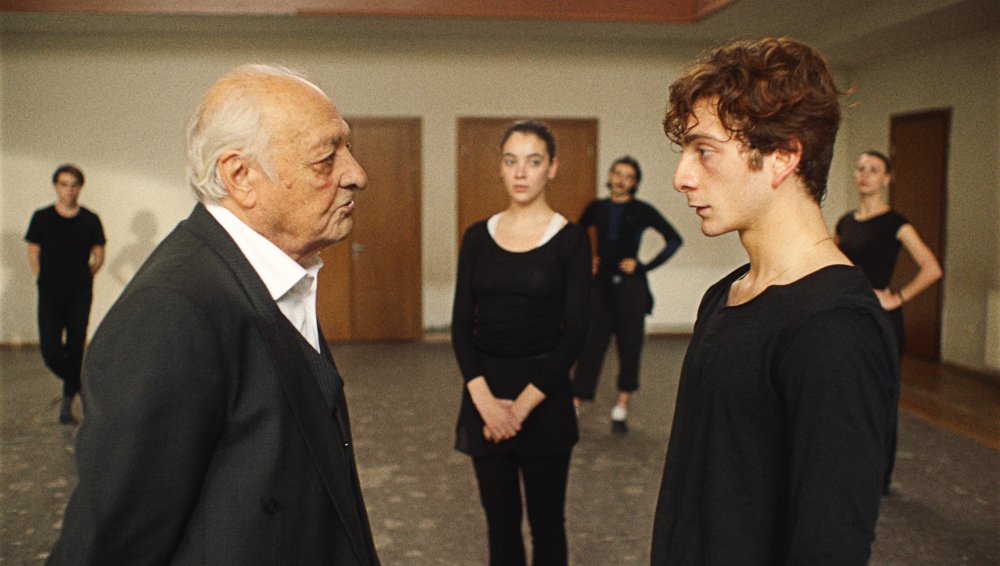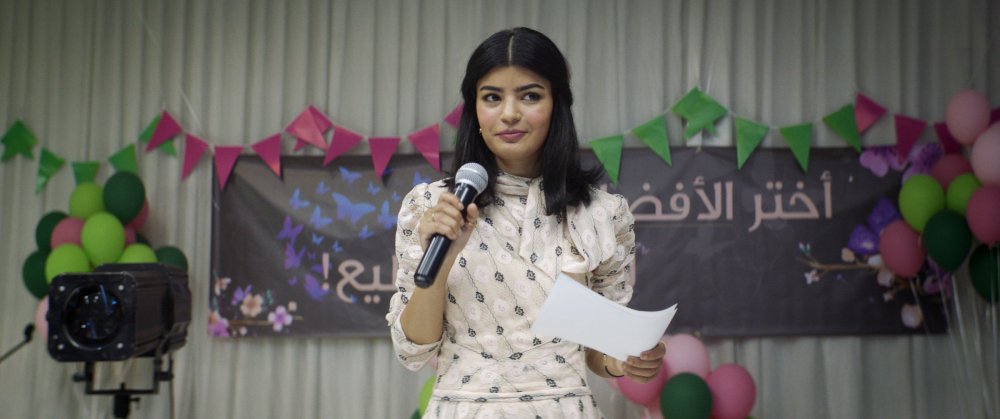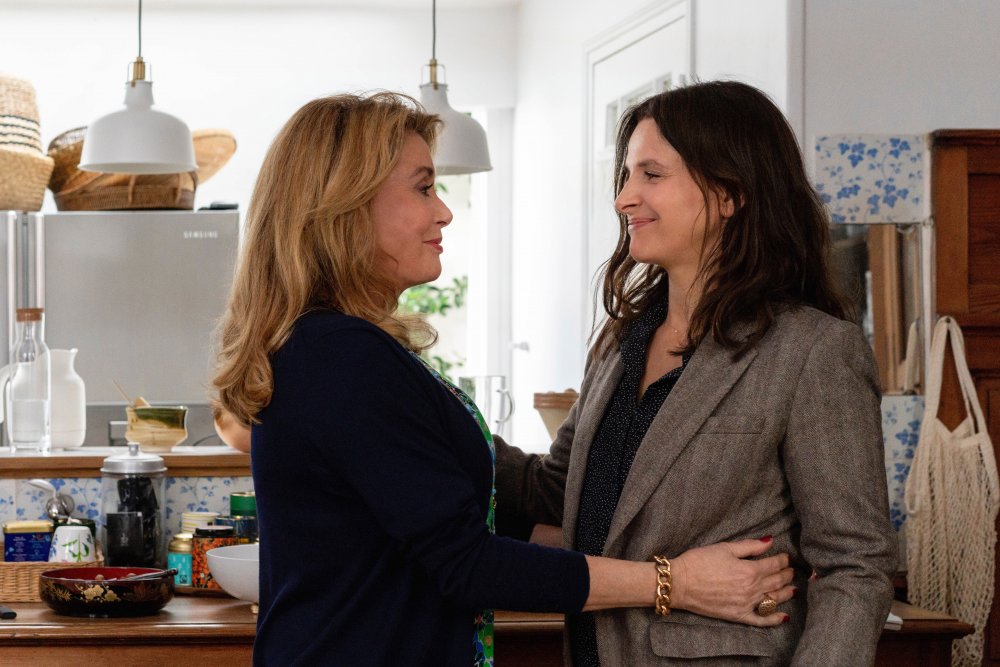
After acquiring Levan Akin’s And Then We Danced following its premiere at the Cannes Film Festival last May, Peccadillo Pictures spent many months planning its release campaign. The UK distributor, which specialises in foreign-language and LGBT+ titles and has scored notable hits with Andrew Haigh’s Weekend (2011) and Ciro Guerra’s Embrace of the Serpent (2015), picked Friday 13 March as the release date for the Tbilisi-set coming-of-age gay love story. The film, which received its UK premiere at the BFI London Film Festival in October and was Sweden’s official entry to the Oscars’ International Film category, was nicely positioned to land in UK cinemas after awards season titles had played out.
Luck, however, was not on Peccadillo’s side. By 13 March, public concern over the coronavirus was gathering pace: Premier League football fixtures were suspended that day; the following day confirmed UK cases of coronavirus passed 1,000; and recorded UK box-office takings for that weekend were the lowest since April 2011.
Next, on 16 March, came the government’s advice to avoid public gatherings, leading to a rash of cinema closures, and on 20 March venues were officially ordered to close. Total UK box office for And Then We Danced had reached just £22,400, including festival and other previews.

And Then We Danced (2019)
Although Peccadillo often releases titles simultaneously in cinemas and on digital platforms, in the case of And Then We Danced, given its estimated broader appeal, the film was released with the intention of having a full 16-week theatrical window, allowing it to play Picturehouse and multiplex venues (including, for example, seven Vue sites in week one). With cinemas shut, however, Peccadillo plonked And Then We Danced on to Curzon Home Cinema and BFI Player from 20 March. Other platforms, including iTunes, Sky Store and Google Play, will follow on 13 April. After all, with studios including Universal, Sony, Warner Bros, Paramount and Disney quickly transferring their released titles on to premium VOD, the theatrical window model was now definitively junked.
Tom Abell, Peccadillo’s founder, is not expecting any complaints from venues (“If it was still playing in cinemas, then it would not be going on to VOD”), and it remains to be seen whether the disruption of the window model will have any lasting consequences. “For small titles, we just don’t have the money to publicise them twice,” says Abell, who views the 16-week window as a particular challenge for small distributors.
Now the challenge is to remain in business. Such measures as a VAT holiday, chancellor Rishi Sunak’s Coronavirus Job Retention Scheme and government-backed loans for small businesses may help.

The Perfect Candidate (2019)
At Modern Films, managing director Eve Gabereau faced a similar dilemma with the release of Haifaa Al-Mansour’s The Perfect Candidate, which was set for 27 March, buoyed by momentum from March events, including the Glasgow Film Festival and London’s BFI Southbank on International Women’s Day. “We decided to stick to schedule and move from physical to virtual cinema spaces and encourage audiences to stream the film as a new release,” Gabereau says. These spaces include Curzon Home Cinema and BFI Player. “We hope that when cinemas resume business, we can revive the film theatrically with events and talks as originally planned.”
Platform alterations
In the exhibition sector, responses to the virus have varied. Picturehouse began writing to cinema staff on 19 March, advising them that they would be laid off. Following Sunak’s intervention the next day, the company had a rethink. At press time the situation was under review, “and we will be updating our employees soon”.
Over at Curzon Artificial Eye, which was acquired by the US-based Cohen Media Group in December, the company was already putting measures in place before Sunak announced the salary subsidy. Jake Garriock, head of distribution strategy, explains that staff had opted for a pay cut “to ensure all staff, at HQ and at our venues, can retain their jobs and receive a basic salary during cinema closure”. With government assistance, they can now improve that offer.

The Truth (La Vérité, 2019)
Even before cinemas were ordered to close on Friday 20 March, the company’s focus had pivoted to Curzon Home Cinema, including the release that weekend of Curzon Artificial Eye’s own The Truth, directed by Koreeda Hirokazu. This premium-priced title helped the platform to achieve its highest-grossing weekend ever, up 89 per cent on its previous best. Transaction revenue for The Truth was 66 per cent higher than the platform’s previous best for a single title on a single weekend.
Smashed window
The independent cinemas that spoke to Sight & Sound about how they were coping with the impact of the coronavirus – including HOME Manchester, Watershed Bristol and Edinburgh Filmhouse – are all in the privileged position of being backed by charitable trusts. None operate zero-hours contracts and all intend to carry on honouring contracts with both full-time and part-time employees.
As for the long-term impact, opinions differ. Rod White, director of programming at Edinburgh Filmhouse, says: “I doubt the current situation will change the conversation around the theatrical window, unless it goes on for much longer than any of us expect.”
But Jason Wood, HOME’s creative director for film and culture, says, “I am not sure we will return to the full theatrical window.” A period dominated by relatively affordable home viewing might have an impact in another way: “Cinemas need to look at their pricing, because many are prohibitive, especially in London and the south-east. Everyone should have access to cinema, not just the elite and the privileged.”
Mark Cosgrove at Watershed adds, “I’m not surprised by the theatrical window being broken – the logic of digital is ‘Everything available now’, but each film deserves its own release strategy for which a window might be part. The theatrical gives important cultural as well as economic value to films, and our colleagues in distribution know and understand this.”